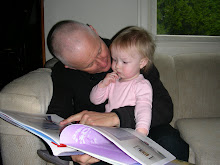“I am ashamed of you.”
The words cut like a jagged saw through the child’s spirit. What could possibly motivate a parent to inflict such violence upon a child?
Words of shame come from having been shamed. Something in the child’s behaviour touches a deep wound in the parent’s heart. The parent feels ashamed and so shames in return.
The accusing voice worms its way into your heart. Unresolved shame is a psychic toxin choking your life, destroying your awareness of the generous abundance and blessing that are the true nature of life.
It fascinates me that the word “shame” rhymes with “blame.”
Something has gone wrong and you are to blame. You should have done this, instead you did that; now look what has happened and you are to blame. You did what you should not have done; you are bad. You could have done better; you are a failure. You should have tried harder, been smarter, or stronger. You have been tried and judged; you have been found wanting. You do not measure up. You should be ashamed.
Shame views life as an endless process of evaluation. We are not quite sure where it comes from, or who put it in place, but someone has established a standard of behaviour against which all our actions are judged. We never quite make the grade.
In the main office where I work we have posted a sign above the desk. It is a quote from my wife’s elderly Aunt who, with the gracious wisdom of her years is in the habit of saying, “I think most people are doing the best they can.”
The process of our lives has equipped us with certain tools. Some of us have bright, shiny and wonderfully efficient tools. Some of us have tools that are a bit rusty and cannot quite manage intricate complicated work. Mostly we have a mix of some good tools and other tools that are not entirely capable of doing the job. But we do the best we can with the tools we have at the time we face the task at hand.
When a saw becomes blunt we do not blame the saw for its inability to cut easily through wood. We do not accuse a saw of being bad because it cannot hammer nails. There is no moral judgment attached to the tool’s failure. We either sharpen or discard the saw and when we need to pound nails we put down the saw and pick up a hammer.
Life is the process of developing new tools and refining the ones we already have. We learn nothing from shame. Shame does not help us develop better tools or refine the ones we have. Shame paralyzes us, creating an identity out of the broken bits of our lives.
I am not the mistakes I have made, or the bad things I have done. I am not the sad things that have happened to me, or the cruelty I have encountered. I am something much more than blame would suggest.
Even the parent who shames the child is working with the only tools he or she has received or been able to develop through the processes of life. I need to look more deeply at the shaming parent to see the wound of shame out of which they act. Then I need to stop being named by shame. I need to open to the One who calls me by my true name saying, “I have called you by name, you are mine.” (Isaiah 43:1)
Through the prophet Ezekiel, God promises there is a place where we can forget all shame and dwell strong and secure. “They shall forget their shame, and all the treachery they have practiced against me, when they live securely in their land with no one to make them afraid.” (Ezekiel 39:26) This fearless land of no shame is not a geographical location; it is that place of purity and truth deep within where God is known and loved. Here we can know freedom from shame. Our true identity lies, not in the toxic words of shame, but in the one word of Love Who says, “you are mine.”

1 comment:
One title say SHAME and another one on the web page states pain but I'll go with shame.
Shame seems to be a reaction to something where we caused pain to someone when we really did not mean to do that aspect. Had we meant to cause pain then I'd assume you would not feel an outward shame.
If we do not listen to that voice that causes us to grow then we are on a self trip and feel no regrets to anybody.
In reality though we are are the person in real pain and God will work with us in his time and call people to come to open up the door.
Shame is a growth word to my mind.
Does this muse make sense,
Today someone asked me why I was on the prayer list when I looked fine. I responded by saying mine was inner and thankfully you cannot see my outer. I could have felt shanme in another time but it is not for me to feel guilty. It is is an honest growth curve as I travel this new hopefully painless journey.
Post a Comment